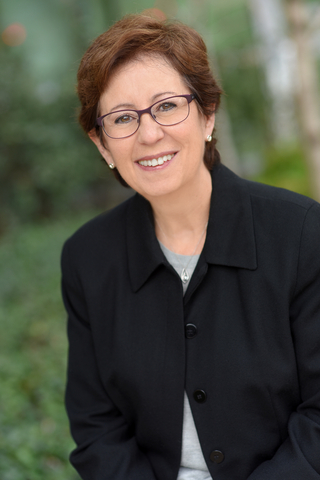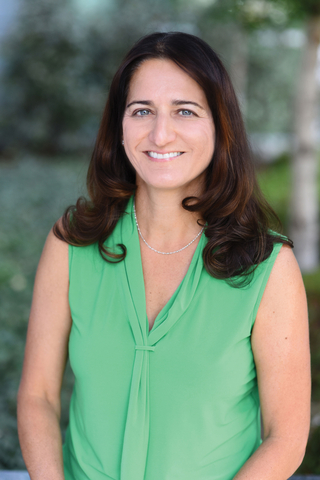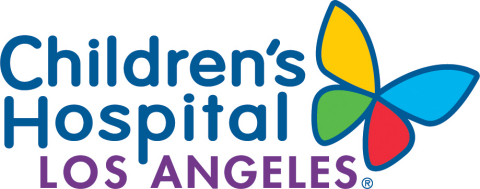预约演示
Children’s Hospital Los Angeles Develops Liquid Biopsy Test for Pediatric Solid Tumors
2023-03-02

Preview
来源: Business Wire
'We created a test that may be helpful in making a diagnosis, determining prognosis, and potentially identifying an effective therapy for children with solid tumors'

Preview
来源: Business Wire

Preview
来源: Business Wire
LOS ANGELES--(BUSINESS WIRE)--Pediatric solid tumors make up approximately 40% of all childhood cancers. While pediatric cancer is rare, children can develop a wide range of tumor types, located in different parts of the body, which can make the differential diagnosis challenging. Investigators at Children’s Hospital Los Angeles have developed a liquid biopsy for solid tumors that has the potential to aid in reaching a specific diagnosis when surgery or a tissue biopsy is not feasible. The study findings were published on February 23 in the journal npj Precision Oncology.
“This is one of the first clinically validated liquid biopsy tests to be launched at a pediatric academic medical center,” says Jaclyn Biegel, PhD, Chief of Genomic Medicine and Director of the Center for Personalized Medicine at CHLA.
“We created a test that may be helpful in making a diagnosis, determining prognosis, and potentially identifying an effective therapy for children with solid tumors,” says Fariba Navid, MD, Medical Director of Clinical Research in the Cancer and Blood Disease Institute at CHLA. Dr. Navid and Dr. Biegel are co-senior authors of this study.
A specific test for pediatric tumors is required because the genetics of tumors that affect adults differ from those in children. Adult tumors tend to be caused by mutations—sequence-based changes in a gene—so most liquid biopsy tests have been developed specifically to identify these mutations. However, pediatric tumors arising from mutations are less common. In children, copy number changes—losing or having extra copies of one or more genes—or rearrangements of genes that result in gene fusions, are more characteristic. For their research study, the CHLA team combined a technique known as Low-Pass Whole Genome Sequencing (LP-WGS) with targeted sequencing of cell-free DNA from plasma to detect copy number changes, as well as mutations and gene fusions, that are characteristic of pediatric solid tumors. An important feature of the study was that it required a much smaller volume of sample than is required for liquid biopsy studies in adults. Since an infant or young child has a smaller blood volume, the assays needed to be scaled down to accommodate this difference.
To create the test, the researchers collaborated with clinical teams and research investigators at CHLA including Jesse Berry, MD, Director of Ocular Oncology and CHLA’s Retinoblastoma Program, as well as investigators involved in Oncology, Neurosurgery and Pathology and Laboratory Medicine. Leo Mascarenhas, MD, MS, Deputy Director of the Cancer and Blood Disease Institute at CHLA was also involved in the design and support of the project.
The first version of the test, launched in Nov. 2022, evaluates chromosomal copy number changes in blood samples, cerebrospinal fluid and the aqueous humor of the eye to aid in the clinical diagnosis for patients with solid tumors, brain tumors and retinoblastoma, respectively.
The next version of the clinical assay, available in about six months, will include detection of mutations and gene fusions.
The liquid biopsy-based genetic tests join the CHLA-developed OncoKids cancer panel, a next-generation sequencing-based assay designed to detect changes in DNA or RNA that are associated with pediatric leukemias, brain and solid tumors; the CHLA Cancer Predisposition Panel; RNAseq for cancer, a transcriptome-based assay using RNA sequencing; VMD4Kids, a panel for vascular and mosaic disorders; as well as methylation array-based profiling for pediatric brain tumors.
Eirini Christodoulou, PhD, and Venkata Yellapantula, PhD, both at CHLA, are co-lead authors on the study. Additional authors, all at CHLA, include: Jennifer Cotter MD, Xiaowu Gai PhD, Dejerianne Ostrow, PhD, and Moiz Bootwalla, MS, of the Department of Pathology and Laboratory Medicine; Katrina O’Halloran MD, James Amatruda MD, PhD, Anya Zdanowicz of the Cancer and Blood Disease Institute; and Liya Xu, PhD, of The Vision Center.
Children’s Hospital Los Angeles is at the forefront of pediatric medicine, offering acclaimed care to children from across the world, the country, and the greater Southern California region. Founded in 1901, Children’s Hospital Los Angeles is the largest provider of care for children in Los Angeles County, the No. 1 pediatric hospital in the Pacific region and California, and among the top 10 in the nation on U.S. News & World Report’s Honor Roll of Best Children’s Hospitals. Clinical expertise spans the pediatric care continuum for newborns to young adults, from everyday preventive medicine to the most advanced cases. Inclusive, kid- and family-friendly clinical care is led by physicians who are faculty members of the Keck School of Medicine of USC, and proven discoveries reach patients faster through The Saban Research Institute of Children’s Hospital Los Angeles—among the top 10 children’s hospitals for National Institutes of Health funding. The hospital also is home to the largest pediatric residency training program at a freestanding children’s hospital in the western United States. To learn more, follow us on Facebook, Instagram, LinkedIn, YouTube and Twitter, and visit our blog at CHLA.org/blog
更多内容,请访问原始网站
文中所述内容并不反映新药情报库及其所属公司任何意见及观点,如有版权侵扰或错误之处,请及时联系我们,我们会在24小时内配合处理。
靶点
-药物
-生物医药百科问答
全新生物医药AI Agent 覆盖科研全链路,让突破性发现快人一步
立即开始免费试用!
智慧芽新药情报库是智慧芽专为生命科学人士构建的基于AI的创新药情报平台,助您全方位提升您的研发与决策效率。
立即开始数据试用!
智慧芽新药库数据也通过智慧芽数据服务平台,以API或者数据包形式对外开放,助您更加充分利用智慧芽新药情报信息。





